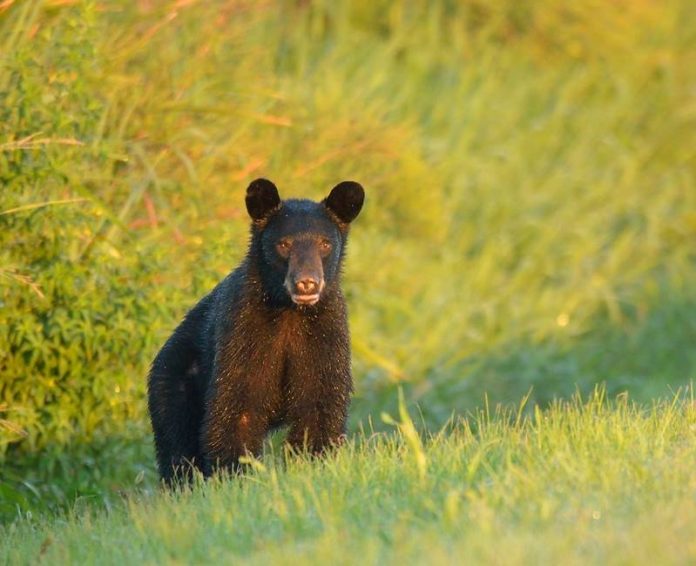
Saw palmetto berries grow wild in Florida and are critical to the survival of many native wildlife species, particularly the Florida black bear. This bear was spotted on the Lake Apopka North Shore.
There are a lot of “dos” when visiting public lands owned and managed by the St. Johns River Water Management District — do take your time to enjoy natural Florida, do take drinking water and insect repellent, do hike or bike and take advantage of these unspoiled acres.
However, with saw palmetto berry season in full swing, the District wants to remind visitors of an important “don’t.” Harvesting saw palmetto berries, critical to the survival of many native wildlife species, is prohibited on public properties across Florida, including the District’s conservation lands.
“While District lands were purchased for their water resource protection values, these public lands also provide Florida black bears and other wildlife with food, habitat and refuge,” said St. Johns River Water Management District Executive Director Dr. Ann Shortelle.
The District owns and manages about 782,000 acres of public conservation land, which helps protect and preserve water resources and provides the community with passive recreation opportunities.
August through October is the harvest season for saw palmetto berries. In recent years, poaching has become a bigger problem as the demand for the berries for pharmaceutical and herbal supplements has increased.
“Saw palmetto berries grow wild in Florida and the southeast United States and are critical to the survival of many native wildlife species, particularly the Florida black bear,” said Brian Emanuel, chief of the District’s Bureau of Land Resources. “Unfettered harvesting of berries from public lands removes a food source important to bears as well as other species of wildlife. Poaching on District lands also can lead to property damage, so we take enforcement activities very seriously.”
Report the illegal harvest of saw palmetto berries to the Florida Fish and Wildlife Conservation Commission at its 24-hour hotline for wildlife and other environmental and boating violations, 888-404-FWCC (3922).
About the St. Johns River Water Management District
St. Johns River Water Management District staff are committed to ensuring the sustainable use and protection of water resources for the benefit of the people of the District and the State of Florida. The St. Johns River Water Management District is one of five districts in Florida managing groundwater and surface water supplies in the state. The District encompasses all or part of 18 northeast and east-central Florida counties. District headquarters are in Palatka, and staff also are available to serve the public at service centers in Maitland, Jacksonville and Palm Bay.
Connect with us on Twitter at @SJRWMD,Facebook, Instagram and Pinterest. For more information about the District, please visit www.sjrwmd.com.









